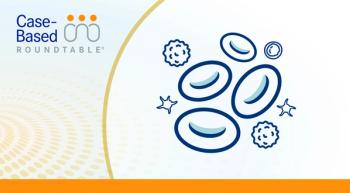
Addressing Unmet Needs for Patients with CLL on Zanubrutinib
Jennifer R. Brown, MD, PhD, discusses the unmet needs for patients with chronic lymphocytic leukemia that are treated with zanubrutinib.
Jennifer R. Brown, MD, PhD, director of the chronic lymphocytic leukemia (CLL) institute at the Dana-Farber Cancer Institute and lead investigator of the ALPINE study (NCT03734016), discusses the unmet needs that remain for certain patients with CLL treated with zanubrutinib (Brukinsa).
According to Brown, these are patients with certain mutations in their disease which makes it harder to reach better outcomes on the
In the trial, the 24-month progression-free survival rate also favored patients on zanubrutinib at 79.5% compared with 67.3% for patients on ibrutinib. The secondary end point of the study looked at fibrillation/flutter rates in patients and found that these were significantly less common for patients on zanubrutinib (5.2%) than those on ibrutinib (13.3%; P = .0004).
Overall, the study showed that zanubrutinib met the criteria for noninferiority and superiority compared with ibrutinib (HR, 0.65; 95% CI, 0.49-0.86; P = .0024), but patients with certain mutation in their disease, like del(17p) or aberrant TP53 mutations, still have aggressive disease that progresses rapidly.
Transcription:
0:08 | The del(17p) and/or aberrant TP53 group of patients remains a significant unmet need. They are more likely to relapse sooner on all our therapies. Richter's transformation is also a major unmet need. That's where CLL becomes an aggressive lymphoma and that's historically been hard to treat.
0:29 | Even in the IGVH-unmutated patients, particularly if they're young, [there] is a significant unmet need, because this group tends to progress more rapidly to treatment and then tends to relapse sooner, certainly on time-limited therapies. If we're going to get them to their natural lifespan, we need more than BTK inhibitors and venetoclax [Venclexta].


















